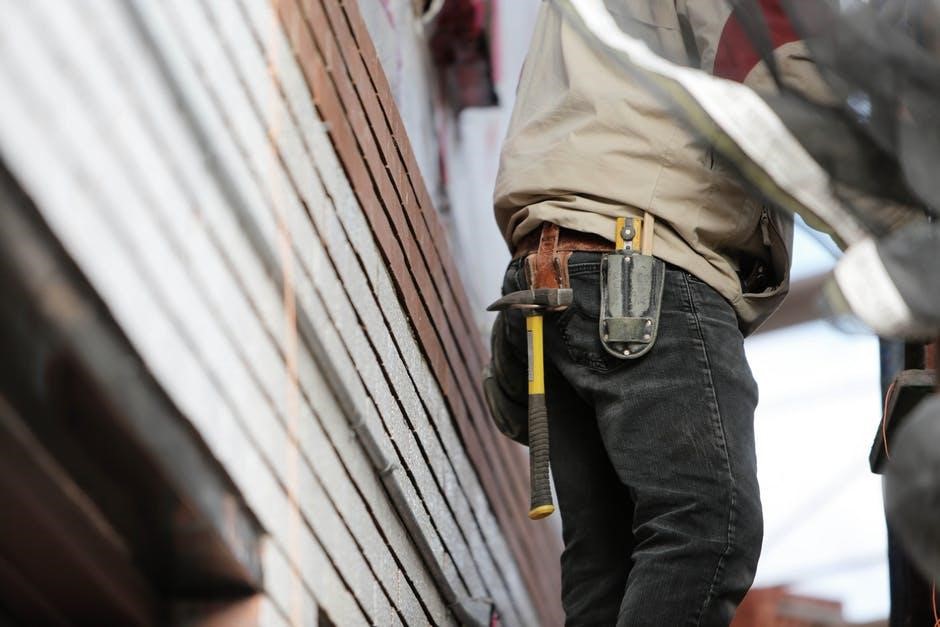As a landlord, seasoned, inexperienced or otherwise, there’s a lot of responsibility on your shoulders, both personally and financially. Entrusting your home to tenants can be daunting. Making sure they make you thousands of dollars and not cost you thousands is another challenge. Therefore, it’s extremely important to be informed about the costly mistakes commonly made by landlords and how you can avoid them. In a hurry? Here are the six costly mistakes by landlords. (Use the links to jump to the section)
Six costly mistakes made by landlords
- Vacancy
- Overpriced maintenance and repair costs
- Poorly maintained properties
- Finding high quality tenants
- Falling for cheap fee structures
- Turnover cost
Costly Mistake # 1: Vacancy
This one seems like a no-brainer, but you’ll be surprised how long some properties can sit on the market.
The impact of pricing on vacancy
Nine times out of ten, the rent is too high. Even if the rent is only $50 per month more than the going rate for similar homes in the area, it could sit vacant for a long time. Just because you’ve invested in an excellent rental property doesn’t automatically mean you’ll get the monthly price you expect. To give some context, we had a customer with a property nearby. Without investigating the potential value in advance, he spent close to $100,000 in renovations (not including the mortgage) believing he’d get $2,000 for rent. Realistically, the highest amount he could get in that neighborhood was $1,100. Similar homes in that neighborhood were renting for $1,000, so it became abundantly clear he made a drastic mistake. It’s important you understand the local market so you can have confidence in the income you expect to generate. Vacancy is one of the BIGGEST costs landlords experience in the rental business. If you overprice your property, it won’t matter what kind of amenities you offer or the renovations you’ve made. People will simply look for similar properties in the area that are renting for less, leaving your home sitting empty for a long time.
The impact of timing on vacancy
Adding to the problem of vacancy is “Timing”. Statistically speaking; homes being offered for rent in the winter (November, December, etc.) could sit vacant for months. In most areas, the best time to lease is the summer. People don't move much during the holidays, so once September comes, it makes more sense to cut your price a bit than to risk a vacancy. If you have a current tenant, don't let your lease go month-to-month into the fall or winter… better to extend the lease so it expires in the summer (thereby avoiding the possibility of a longer winter vacancy).

Costly Mistake # 2: Overpriced Maintenance and Repair
As a landlord, I’m sure you’ve encountered this situation: You ran into a problem and called a plumber. He came and fixed it in 15 minutes. A week later you received a bill for $200! Ouch!! It happens all the time… overpriced maintenance can cause a landlord huge headaches. You typically don’t need to hire an electrician, plumber, or contractor for most repairs. A well trained, responsible, licensed handyman can handle 80% of maintenance requests. Warning: This is not the time to get cheap and hire unlicensed contractors. Yes, you might save money in the short run... until something happens. For example: Your fly-by-night worker accidentally breaks a power line that causes the store down the street to shut its doors, costing thousands of dollars in damages. Guess who's liable? You are! You need to hire licensed, bonded, and insured contractors. This is not an area to skimp on.
Costly Mistake # 3: Not keeping your properties well maintained
Owning rental properties is a business; you have to maintain the home to prevent massive repair bills. This is a commonly made mistake when landlords live in different areas than their investment properties. You need to make sure to do your due diligence on maintenance needs at least every 6 months. By doing so, you can make sure your tenants are keeping things clean and prevent yourself from having to deal with larger issues when your tenant’s lease ends. Make sure you talk with an experienced property management company or investor who’s performed maintenance on their properties before. Our advice: Set aside $100 to $200 per month for your maintenance or potential repair funds. If you’re handy and can handle most maintenance problems aside from the major ones, $100 should be enough to cover the material costs. However, if you don’t have experience doing repairs or simply don’t live in the area, reserve $200 a month. If a problem comes up and you have to pay to fix it, you can dip into your reserve fund and won’t have to scramble to pool money together to pay for the bill.
Costly Mistake # 4: Vetting and finding high-quality tenants
Whether you are self-managing or have a property management company, being able to find high-quality tenants is a top priority. It’s no longer good enough to just throw out a rental sign in the front yard and hope for the best. If it was that easy, we wouldn’t feel the need to publish this article. You want to make sure you’re getting a tenant that:
- has the means to pay,
- has the history of paying rent on time, and
- will take decent care of the home.
Let’s do an example: Your house has been on the market for a while now. You’ve had a number of people apply, and now you have to figure out which ones are the best fit. Even though it may be tempting to select the first one or two applicants, it’s best to talk to as many potential tenants as possible before moving forward. There are a few things you must include in the application process:
- Request references
- Steady employment
- Two occupants or less per bedroom
- Salary/wages
- Application fee (to make up for the time you’re investing in screening them)
- Credit/background checks
These criteria will help you get a better feel for the tenants. It’s also not a bad idea to go ahead and set limits or requirements for your properties. For example, some property management firms, including KRS, have a 3x income requirement on tenants. This means that the tenants have to be prove their earnings are three times the monthly rent. Another popular requirement is regarding length of employment. It’s not uncommon to require the person has been at the same employer for at least 6 months (if not longer.) An employment requirement can demonstrate the tenant is responsible enough to not be fired from their job and can commit to something for an extended period of time.
Costly Mistake # 5: Paying for extra management fees
It’s can be very attractive to hear when property management companies tell you they will rent out your home for low management and leasing fees. Some companies may charge $100 per month flat rate. In many cases, the money saved on management fees get passed on to you in other costs. Examples of additional fees include:
- advertising fees in connection with placing a tenant
- an annual inspection fee
- maintenance reserve (so that the management company has some cash on hand to take care of unanticipated, but urgent, expenses)
- bookkeeping fee
- fees associated with eviction services
Think about it, if your property rents for $1,000 and your property management company hasn’t found a tenant for two months, that’s $2,000 of missing rent money for you. Sure, you might save a few dollars by going with the cheaper property manager but you just lost far more than that due to vacancy. This might not be a big deal for them, but this is HUGE for you. With the best property managers, paying a little bit more is a wise investment, because they can help enhance the value of your property, and they help attract and retain quality tenants.
Costly Mistake # 6: Tenant turnover costs
Many landlords might not be aware of it but the biggest hidden cost of being a landlord is tenant turnover. It is the next biggest expense after your mortgage and property taxes. Experienced landlords know the key to minimizing this cost is to have a system to manage the turnover process. Without a proven system, you will experience a lot of anxiety until you finally collect the next rent check. Here are just some of the costs associated with turnovers: Cleaning Costs – Even your best tenants may not be able to get your property back to the level of cleanliness you require for the next tenant. There can be extra expenses that will come out of your pocket. Repair Costs – Not only will repairs cost you money, but the longer it takes to get the property market ready, the longer you will be without rental income. Application Processing – Property managers or landlords should always review tenant screening reports to discover their financial responsibility, job stability, law-abiding behavior and rental history before approving an applicant. Marketing the property: If you have a property manager, the marketing costs typically will fall under your leasing fees. However, if you are currently self-managing, you will have to spend a lot of hours putting up ads and showing your property to get the best possible pool of tenants for your property. This often means taking time off of work or other responsibilities you may have. Lost Income – Without steady income from regular rental payments, you will notice a hit to your bank account, that will continue to worsen the longer your property is vacant. This will be especially noticeable if you are relying on rental income to cover a mortgage payment on the property. According to many online sources including TransUnion, if your monthly rental income is $950, you should expect around $1,750 of turnover cost on average if your property sits for a month. This is a huge shock for many inexperienced landlords who are caught off guard by the massive turnover costs. Lost income from the rentals is the biggest contributor to this price tag and it is compounded if your rental income supports your mortgage on the property. Our advice: Make sure you or your property manager get a long-term reliable tenant that will stay year after year. But if one of your tenants does decide to move out, it is crucial to understand the true cost of tenant turnover so that you can prepare for the situation.
Finding Quality Tenants Fast Is Extremely Difficult
There is no way anyone can successfully manage properties -- especially a large volume of properties -- unless they have a proven system for finding quality tenants quickly. When you are dealing with someone like KRS Holdings, we have the same “vested” interests. At KRS, we want to rent your home quickly, to a good tenant, because that’s the only way we make money. Our focus is not selling homes but managing rental properties (like yours) for the long haul. Our leasing agents can give you an accurate, no B.S. assessment of your property so you can avoid costly mistakes that might turn your cash flowing properties into bad investments.
Maintenance is a Key to Our Success
Unlike other property management companies who have to hire outside maintenance vendors, KRS has grown large enough to have our own in-house technicians who service 80% of the work orders that come in (saving our clients money). The remaining work orders are outsourced to a trusted list of approved vendors. These contractors offer KRS deep discounts due to the volume of work we’re able to give them (saving our clients money). Our founder and owner, Kyle Stephenson, created this company to help our clients avoid these costly mistakes and make their homes into wealth generating investments. We’re here to make a positive difference in your life. Please let us know how we can help.








